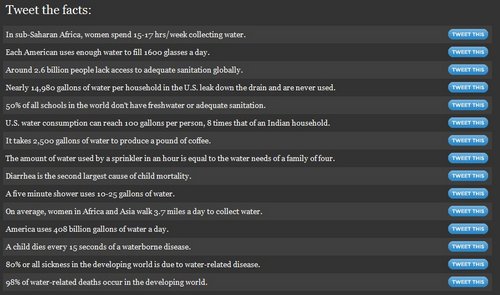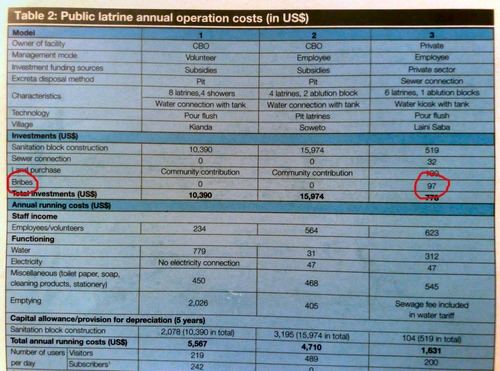I’ll be in Stockholm over the weekend to attend the 3rd meeting of the Sustainable Sanitation Alliance (@ Stockholm Environment Institute, SEI). Plans actually included to attend the upcoming World Water Week in Stockholm and, more importantly, having a few interesting conversations during those evening sessions, but…[still searching for an excuse to explain why my Boss wants me to be back in the office by monday – although she’s the one staying in Stockholm for the rest of the week…argh…now let’s see how good Ryanair actually is – just rescheduled my return flight to Aug 13th.. :-)].
Nways. If you’re interested in water and sanitation issues – and I hope you are, as we’ll have the International Year of Sanitation declared by the UN for 2008 – pls have a look at akvo.org, their blog and akvopedia. The latter being an OPEN wiki for the international water community. Thomas and his team are already working hard to present AKVO to the international community on the World Water Week, they are looking for some further funding of the project and hoping to raise some awareness for such an internet platform on water and sanitation issues (the website shall, at a later stage, also include a microcredit part we’ve already seen with kiva.org). Oh, and btw: akvo is the Esperanto word for “Water”.*
If they succeed in convincing some donors, such a website *could* become the leading resource for anything related to water and sanitation online. It could, as content contribution depends on everyone, and coming up with such a great website also means convincing many other stakeholders who still do not see the internet in a way we see it (~ as a huge resource of interesting information that should be made accessible, editable and exportable to a world wide audience 24/7/365). In other words: future generations, I believe, are already used to browsing the internet and filtering it for genuine information that is of use.
Hence there’s no need for further publications in paper format if instead we can come up with an interactive communication platform such as a single website where content is pulled together from different resources. This kind of knowledge management is also the same spirit that Chris and his team are trying to implement in the development sector and are hoping to promote through the upcoming Web2forDev conference in Rome, Italy, later on in September this year.
You see, until now, many aid / dev organisations just tossed out their knowledge onto the internet and thereby indirectly asked their readers to search for the required information on their own. In our case of ecological sanitation, a lady from India recently told me that it took her 5 months to find all the necessary information online which helped her starting her own project on building ecological latrines at a local school. Obviously, we can do better than that.
Back in 2005, when Erik and I joked about the Gadgetimoja term I often use on my blog, Erik suggested that we should come up with a website dedicated to African ingenuity. And he did. Within a short time, he had the blog up and running, and our dedicated team behind Afrigadget started contributing stories. Interested readers would send in their stories on toys, resourceful hardware modifications and thereby showing to the world wide audience that Africa isn’t just a dark continent, but instead a place where people started doing their own little projects (or as Prof Ayittey would correctly argue: loooong time before the colonialists came). After the website got boingboinged a few times, ppl started realizing that interesting stories do not only emerge from high-tech laboratories in SE Asia and the US.
Of course, the sceptics will argue that the internet isn’t everything and that you won’t be able to feed a hungry child or solve real world problems by IT only. However, I think and really believe that all these approaches on spreading knowledge on available technologies may in the end contribute to the bigger picture – which isn’t just an idealistic, often too altruistic approach on changing the world, but instead coming up with an organized internet resource which would pull in different feeds on a similar topic from various physical locations. Think of David Weinberger’s tagclouds, think of the Cluetrain communication approach, think of social bookmarking ? la delicious, the wide-spread use of Wiki’s to organize knowledge and events (!), internet publishing technologies that enable 13year old kids to come up with their own, user-generated content (~blogs, youtube, etc.) and you’ll get the idea.
Who knows – maybe one day we won’t see Google? providing us with “search results” only, but instead a complete page that will have pulled-in feeds from quality (!) resources (rated by their users) and give us a quick overview on a qualified repository of knowledge that is available online. At least, I wouldn’t want to search the net for 5 months only to find a good solution to a technical issue.
And you?
(* = someone from the akvo team told me they actually tried to secure a Kiswahili domain in the first place…huuu….which goes to show that my strategy from way back 1998 when I registered uhuru.de, umoja.de & co actually wasn’t that stupid :-)


